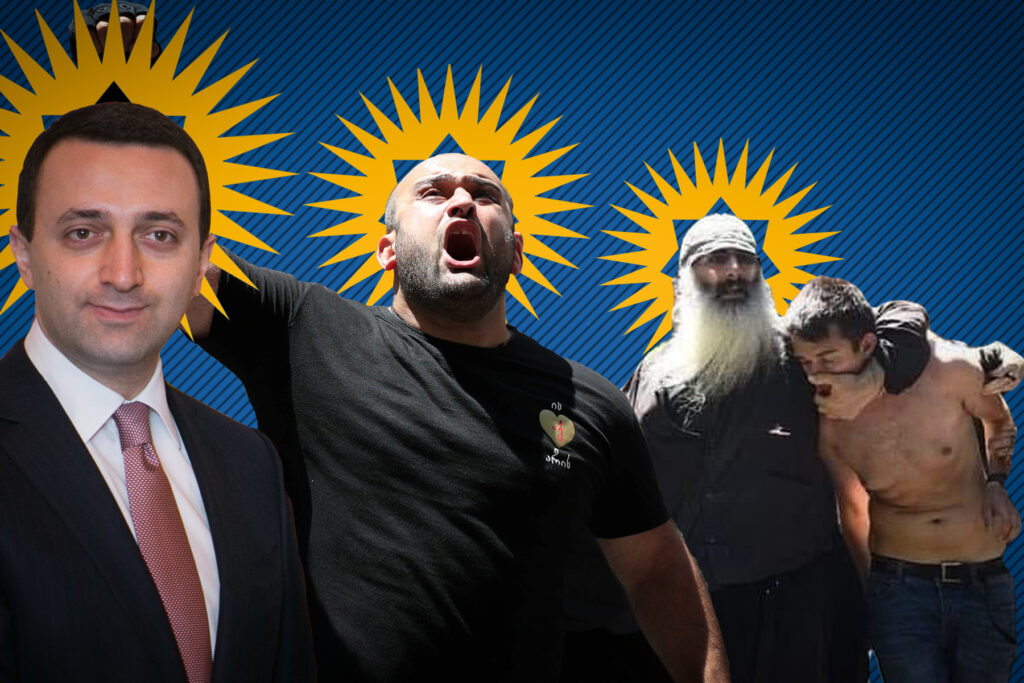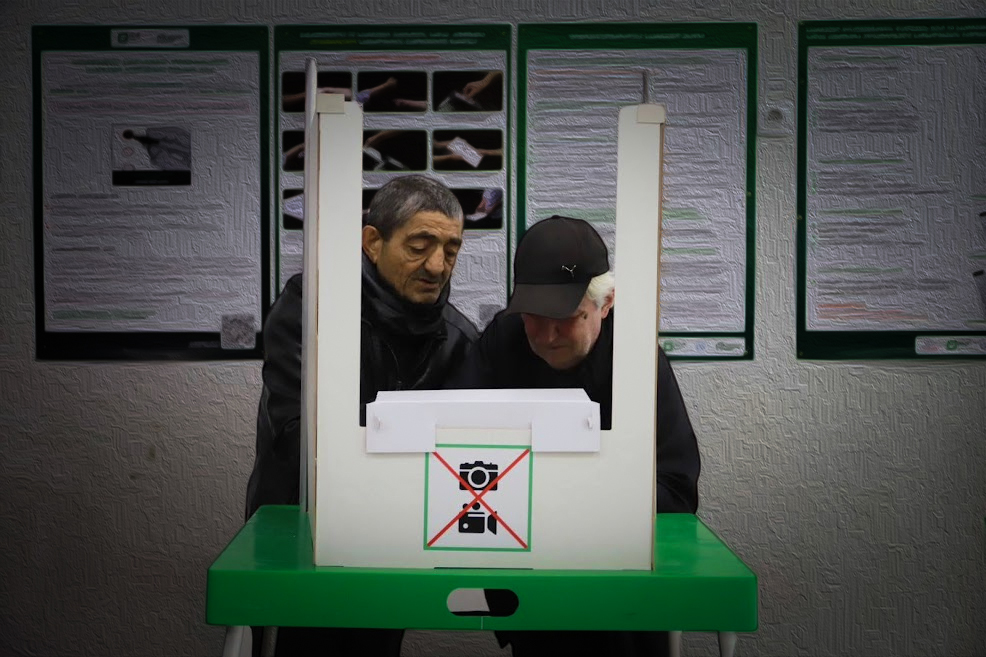A homophobic protest against Tbilisi Pride on 5 July turned into a pogrom against the press. While religious and far-right violence is a cause for concern, the legitimisation and encouragement of such violence by the Government of Georgia is more dangerous still.
For the first time in our history on 5 July, OC Media’s management instructed our staff not to openly display their press credentials — to hide our identities as journalists.
Identifying oneself as a journalist is, in general, a key part of how we try to keep ourselves safe. This is because freedom of the press is constitutionally protected in Georgia, and it is a criminal offence to interfere with our work. And yet, on 5 July, journalists were hunted in the streets of Tbilisi as the law stood aside and watched.
At least fifty-three journalists were injured throughout the day — six were hospitalised — as mobs specifically sought them out and beat them.
[Read more: Homophobic mob celebrates on Tbilisi streets after Pride march cancelled]
In the morning, as the attacks were already underway, Prime Minister Irakli Gharibashvili responded by blaming the queer activists at Tbilisi Pride. He called them ‘revanchists’ and ‘radical’ and said, without presenting a shred of evidence, that they were affiliated with former President Mikheil Saakashvili.
Irakli Kobakhidze, the chair of the ruling Georgian Dream Party, parroted this conspiracy later that afternoon, claiming that ‘the purpose of the Tbilisi Pride wasn’t to protect anyone’s rights, but had subjective political interests behind it’. Other party leaders, such as Mamuka Mdinaradze, echoed the sentiment.
No one at the highest levels of government, with a few exceptions, adequately condemned the violence or correctly attributed the blame. More importantly, they did nothing to put a stop to the brutality that was unfolding on their doorsteps.
Despite the attacks continuing from morning until night, the police presence remained light. The armoured riot police we have grown accustomed to seeing at many far less violent anti-government protests were nowhere to be found.
The few police officers who were present were often slow to respond. They themselves were endangered by a mob in several instances due to their scarcity. Our journalists witnessed several attacks in which police stood by until the last possible minute, before escorting the, by then already injured, journalists to safety. They did not arrest the perpetrators. A day later, despite the large volume of video and photographic evidence, only 11 people have been arrested.
This was an utter failure to protect what is a pillar of democracy — the free press. What became ever more clear throughout the day was that this failure was not one of competence, but that a clear and conscious decision had been made not to confront the violent mob.
The protests were largely organised by the Georgian Orthodox Church, and despite the Patriarchate’s repeated insistence that they maintain a peaceful prayer-based protest, many individual priests took part in and encouraged the attacks.
But much of the violence was also clearly planned and carried out by far-right and extremist elements. It was no coincidence that the only media able to operate freely and without hindrance was Alt Info, a far-right outlet granted a broadcasting license last year.
By allowing, legitimising, and even encouraging the violence, the government is likely attempting to curry favour with the Church. But by their actions, they are also allying themselves with a violent and hateful far right.
The impunity enjoyed by yesterday’s mob to freely attack journalists has set a precedent that will be difficult to undo. If a swift and effective investigation, leading to the arrest and conviction of the perpetrators, does not follow then the events of 5 July will undoubtedly be repeated.




 6 July 2021
6 July 2021




